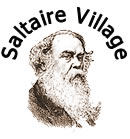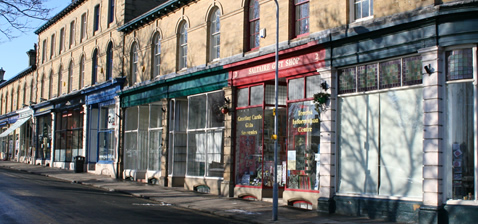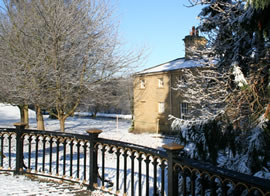 |
| Saltaire Sentinel |
|
 |
|
|
|
|
| |
|
|
|
|
 | The Saltaire Sentinel | March 06 | The Saltaire Sentinel | March 06 |
|
|
|
|
Barlo & Shaw's A to Z of Saltaire street names |
|
When Titus Salt set about building Saltaire in the 1850s, it was entirely fitting that he should name the main street of his township after the monarch of the time, Queen Victoria. Originally called Victoria Street, Victoria Road has featured in most major events in Saltaire over the last 150 years.
 A view of Victoria Road, March 2006
A view of Victoria Road, March 2006
|
| By contrast, Victoria Terrace (the short row of cottages looking out over the grounds of Saltaire United Reformed Church) has preserved a near anonymity.
Victoria was born at Kensington Palace, London, on 24 May 1819, the only daughter of Edward, fourth son of George III. Edward died when Victoria was a child, and with the death of William IV in 1837, she succeeded to the throne - a consequence of her uncles’ lack of heirs. |
 Victoria Terrace, March 2006
Victoria Terrace, March 2006 |
During her reign of more than 60 years, the British Empire was at its most powerful. Although never visiting Saltaire, Victoria was aware of its significance and of its products. On one occasion, she had a pair of alpaca fleeces sent to Saltaire for spinning and weaving into worsted garments.
Queen Victoria eventually died in 1901, at her Isle of Wight home of Osborne House. Built shortly before Saltaire, the Italianate architecture of the House is closely reflected in that of the village’s larger buildings. The most poignant memorial of Queen Victoria is to be found in the Royal Mausoleum, Frogmore, Windsor. Housing the mortal remains of Queen Victoria and her consort Prince Albert, the mausoleum is open to the public on just a few selected days each year. |
|
|
|
|
|
|
IT'S THE PAPER THAT IS
ALWAYS
IN SALTAIRE |
|
 |
|
|

